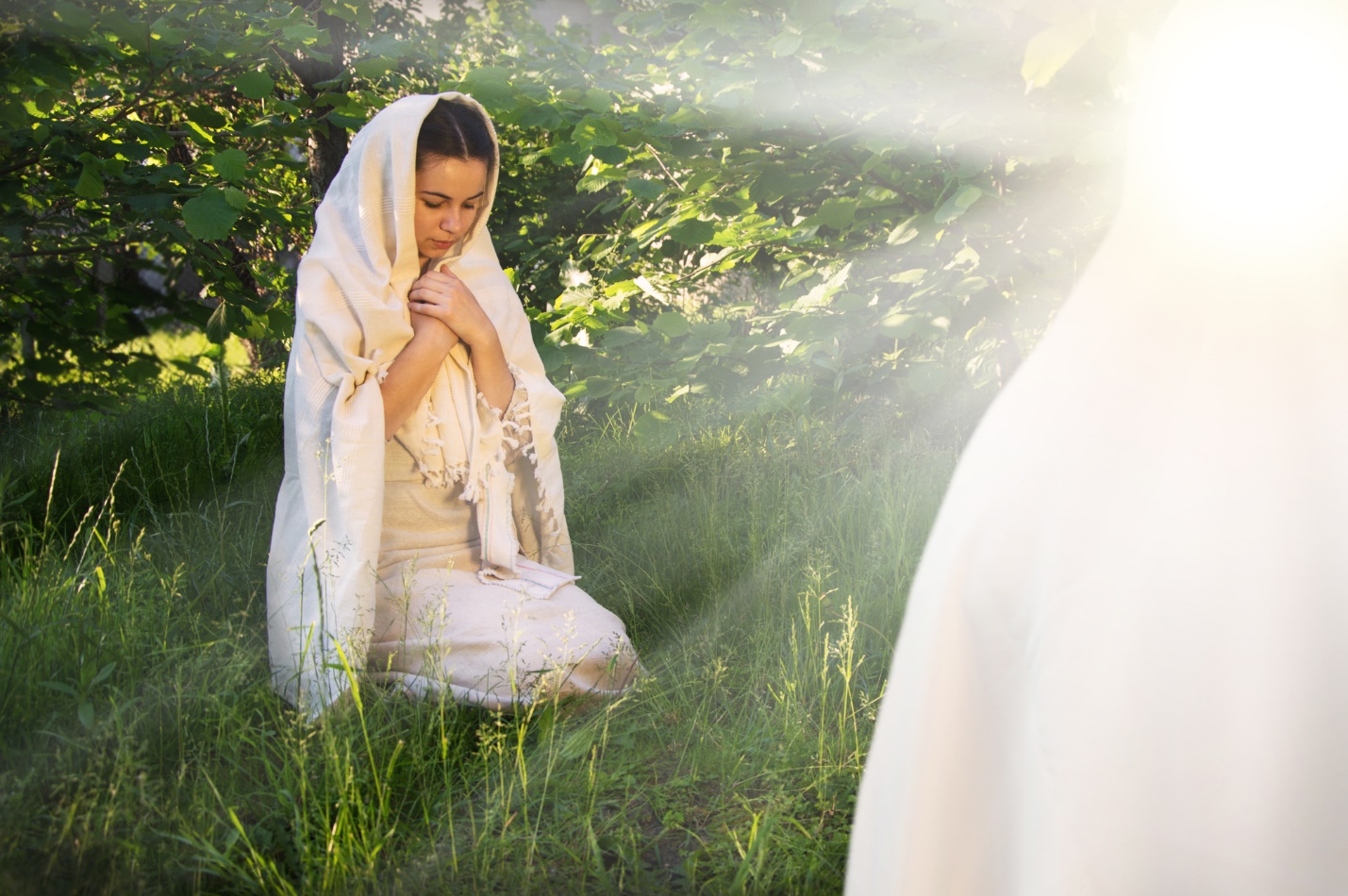BP 215

Have you ever had that sinking feeling in your stomach that comes when your mind is reminded of something, something that is not simply undesirable but intensely emotional? I suppose grief can trigger that feeling although grief more commonly triggers a burning feeling in your chest or throat. The dropping of your stomach is more associated with a different emotion: fear.
What kind of fears cause your stomach to drop?
There is a whole range of fears that can trigger the sinking feeling such as a major exam in school that you’re worried about, a phone call from a credit agency reminding you that you are six months behind on payments, a trigger that awakens your fear about your “prodigal” child who has walked away from Jesus (fear and grief comingle here), a thought that you are now closer to your death day than your birth day, a random thought of a nuclear war and World War III, or a medical procedure coming up that leaves you feeling out of control and scared (like skin cancer surgery on your face while you are alert and feeling the doctor cutting and sewing up your face from behind the mask that covers your eyes).
Today, we are going to set our sights on the final example above, namely, an impending medical event that triggers your fear. You might be afraid because cancer has been diagnosed as a possibility and you have a biopsy coming up to confirm it. You might be worried because a scheduled surgery will reveal if you face a future of healing or suffering followed by an early death. You could fear that you will die during the procedure and never really get to say goodbye to your loved ones. Whatever the situation, men and women often feel that sinking feeling in their stomachs as they anticipate the upcoming medical event—even believers in Jesus experience it.
For some people, simply waiting for the surgery or procedure is highly difficult. You might be waiting a week or a month or even several months.
Then, of course, there are the last two hours while you are sitting there the day of surgery waiting to go into “the room.” The waiting can be almost as challenging as the medical event itself because you have so much time to think about it and your mind can run just about anywhere.
And you haven’t even begun to think about the recovery yet . . .
Yes, our minds can be a battleground when it comes to anticipating scary events. Such occasions remind us that a significant part of human maturity is learning how to experience comfort during times of fear or anxiety. (I do believe there is a difference between fear and anxiety which we will not discuss today.)
How do humans learn to experience “comfort”? There are many counterfeit options: Denying reality. Alcohol. Marijuana. Valium or Lorazepam or Xanax. Pornography, sexual fantasies, and masturbation. Retail therapy. Food. Excessive exercise. Self-harm like cutting and burning. Vacuuming and other cleaning or organizing. Sleeping a lot. Listening to music to excess. Watching movies or reading books. Escaping into video games. Eastern meditation. The power of positive thinking. Related is the New Age exhortation to think good things into existence with positive thoughts.

All these pursuits might provide some comfort, yes. But what is missing from all of them? All these comforters are lonely. They can be done by yourself. They are auto-accomplished—self-achieved. They do not require the presence of another person.
For those who depend on alcohol to comfort themselves, they are uniquely challenged on surgery day when they are told not to eat or drink anything 12-18 hours before the surgery. Yes, it can be very challenging if you depend on outside things to comfort you that are not available as you approach your hour of fear. That’s why having an internal source of peace and joy is so powerfully helpful—especially when you enter the surgical room or the procedure room mostly alone and no one is with you except the masked strangers.
Here we pause to ask a question. Is comfort a lonely experience? Is it solely “self”-comfort, self-generated? Does comfort even exist if you are all by yourself and depending solely on your abilities to distract yourself from fearful things? Or does someone else need to be part of the equation for genuine comfort to occur?
How many of you have routinely been possessed by anxiety or worry? Be sure to examine your coping skills to see if you are including others in your journey toward comfort or if you are relying only on yourself to generate comfort through the means listed above. Why? I believe comfort is only truly experienced while others are with you and as you transparently share your fear and worry and anxiety. Better said, true comfort as it was originally designed is only experienced in the presence of others.
Like other people and God. After all, some of the meanings of the word comfort include “strengthening, giving support, and consolation.” These definitions seem to require an outside person to provide strength and support.
When I get to this point, I often refer to good old Paul in 2 Corinthians 1:8ff: “For we do not want you to be unaware, brothers, of the affliction we experienced in Asia. For we were so utterly burdened beyond our strength that we despaired of life itself. Indeed, we felt that we had received the sentence of death. But that was to make us rely not on ourselves but on God who raises the dead. He delivered us from such a deadly peril, and he will deliver us. On him we have set our hope that he will deliver us again.”
It is quite clear in this passage that God was teaching Paul not to rely on himself for deliverance or comfort when he was in terrible distress but to rely on someone outside himself, namely, God. Paul and his companions, who were facing affliction, despair, and even death, were called to “set their hope” on God for deliverance, not themselves. Hope is the vehicle of comfort.
Tim Keller spoke about this comfort delivering hope in one of his messages back in 2013. He said, “The first part of courage is looking away from yourself [Italics are mine for emphasis]. The world tells you, ‘Look at yourself and banish fear.’ The second part of courage is looking toward hope, getting a hope. Real courage is not the absence of fear; it’s the presence of joy — so much joy that the fear plays its proper role. Well, how do you get that joy?”

Yes, men and women—even believers in Jesus—often believe incorrectly that courage is about them self-generating comfort and screwing up their courage with a resolute face and an iron will. “I will not be afraid,” is the mantra. “I will breathe deeply and master this obstacle and visualize a positive outcome.” Motivational coaches often encourage us to rise above our fears through our own coping devices to the exclusion of needing others.
Such an attitude is so lonely at best and so (maybe unintentionally) arrogant at worst. We rely on ourselves when God calls us to rely on Him. Humans are not built to self-generate comfort and courage but to receive it from someone else—other humans who are encouraging and comforting but ultimately from the Heavenly Father Himself, the God of all comforts.
So, what is helpful to know if your stomach is sinking because of an impending surgery (or because of other dreadful things)?
First, know that you will have fear. When scary things come charging at you, you will be afraid. Fear might be overwhelming or only slightly intense depending on your growth journey. Even the divine Son of God experienced fear in the Garden of Gethsemane. So intense was His discomfort and fear around the events that lay ahead of him that He sweat drops of blood. (The fear of physical pain was probably the least of His torture. Yes, it is important to acknowledge that His suffering was “other” than what we have or ever will suffer.)
Second, seek other people with skin on and God Himself for comfort and presence. Ask for prayer. Receive some hugs. Have a safe person hold you and pray for you. You were created for presence and comfort so to deny that and fly solo is to go against your very nature.
Third, turn your eyes on Jesus and, intentionally and with focused vigor, rehearse His presence and run toward Him. Get into the word of God and read and memorize comforting truths (I have listed some passages below to check out). Why do we read the word? Simply to get words into our brains?
No, we read the Bible because the passages, promises, truths, and anecdotes from those who walked with God in the Old Testament and with Jesus in the New Testament draw us toward the Triune God. They usher us into His presence. We know Him through His word. Remember, it is all about Presence—someone being with you–God being your Deliverer, your Strength, your Comforter, your Father, your Counselor, the One who holds you by the right hand.
Comfort is not about self-reliance, grinning and bearing it, gutting it out, distracting yourself somehow until the feared event is over. Some humans are capable of resorting to these lonely techniques. I think that to seek “comfort” alone a man or woman must distort who God made them to be into a false version of who they are. Remember, whatever you practice—seeking God and others or relying solely on yourself—will become your baseline position over time. Practice makes permanent. Yes, you get to choose self-reliance or other-reliance. You will memorize one or the other.
Maybe even the definition of hell is a place where people go who do not want help from God or anyone else.
Some of you have read what I have written about King Jehoshaphat in a previous post. Yes, I often turn to 2 Chronicles 20 as a template for believers who are facing fearful things such as medical procedures. Why is this Old Testament passage helpful for those who are afraid? Because woven into this account is an amazing formula designed to cope healthily with impending fear.

What can we learn from Jehoshaphat? When he was told that a formidable army—too big for him and his people to defeat—was marching up from the Dead Sea toward him, he responded in ways that may help you as you face your approaching fears.
+ Jehoshaphat was afraid.
+ He personally “set his face to seek the Lord.” He pursued God’s presence.
+ He called the people to come together to fast and seek the Lord. He knew the power of corporate presence.
+ He reminded Himself and all the people of God’s character, of His sovereign power and might.
+ He reminded everyone of God’s faithfulness to them in the past.
+ He recalled the covenant relationship that would never be broken by God.
+ He admitted his own powerlessness as well as that of the people uttering those famous words, “We do not know what to do, but our eyes are on you.”
+ He was humble enough to listen to the advice of someone with skin on—in this case from Jahaziel whom the Spirit of the Lord spoke through—and to his words of comfort: “Thus says the Lord to you, ‘Do not be afraid and do not be dismayed at this great horde, for the battle is not yours but God’s. Tomorrow go down against them. Behold, they will come up by the ascent of Ziz. You will find them at the end of the valley, east of the wilderness of Jeruel. You will not need to fight in this battle. Stand firm, hold your position, and see the salvation of the Lord on your behalf, O Judah and Jerusalem.’ Do not be afraid and do not be dismayed. Tomorrow go out against them, and the Lord will be with you.”
+ Jehoshaphat obeyed God’s command through Jahaziel.
+ Jehoshaphat and the people “fell down before the Lord, worshipping the Lord.”
+ He intentionally chose to believe in the Lord.
+ He took counsel with the people.
+ He and the people went to face the feared enemy with singing and praise. They repeated, “Give thanks to the Lord, for His steadfast love endures forever.”
+ In the end, God was faithful to His word. He fought the battle and delivered Jehoshaphat and the people of Judah from their fears.

If you need a formula of comfort to help you when you face an approaching fear that makes your stomach sink, look to the above account of Jehoshaphat whose stomach sank into his feet when he heard about the terrible hoard that was coming against him and his people. Key ingredients in his response to fear were admitting his fear and powerlessness, seeking the presence of God and others over and over, remembering God’s character and past faithfulness, using worship as a weapon against his fear, looking at God instead of His fears.
Like King Jehoshaphat, Dr. Tim Keller had an experience of God’s comforting presence during his first journey with cancer. In his book Walking with God through Pain and Suffering (2015), he wrote:
“There have not been many times in my life when I felt ‘the peace that passes understanding.’ But there was one time for which I am very grateful. . . . It was just before my cancer surgery. My thyroid was about to be removed, and after that, I faced a treatment with radioactive iodine to destroy any residual cancerous thyroid tissue in my body. Of course my whole family and I were shaken by it all, and deeply anxious. On the morning of my surgery, after I said my good-byes to my wife and sons, I was wheeled into a room to be prepped. And in the moments before they gave me the anesthetic, I prayed. To my surprise, I got a sudden, clear new perspective on everything. It seemed to me that the universe was an enormous realm of joy, mirth, and high beauty. Of course it was — didn’t the triune God make it to be filled with his own boundless joy, wisdom, love, and delight? And within this great globe of glory was only one little speck of darkness — our world — where there was temporarily pain and suffering. But it was only one speck, and soon that speck would fade away and everything would be light. And I thought, ‘It doesn’t really matter how the surgery goes. Everything will be all right. Me — my wife, my children, my church — will all be all right.’ I went to sleep with a bright peace on my heart” (318).
I had a similar experience in 2015 dealing with a surgery that was not as scary as Keller’s.
I woke up one morning in August of that year with eyesight that was obscured by a blind pulled halfway down my field of vision. One thing led to another and only hours later, I was lying on a narrow, cold hospital table waiting to go into eye surgery for a torn retina and a detached retina. I remember that the wait seemed interminable. I felt my stomach sinking and I suddenly was faced with the need to experience comfort (instead of breaking into a full-blown panic).
I began to recite Bible verses I had memorized. One of my favorites I have quoted over the decades was Psalm 31:14-16. Then I began to sing all the worship songs I could recall. I remember sensing a wave of comfort washing over me only to have a subsequent wave of fear rise up and threaten to inundate me. I literally experienced that sinking feeling in my stomach. I responded by turning my eyes back on Jesus again and the comfort returned. Then another wave of fear came. This pattern went on for at least half an hour: wave of fear, wave of comfort, wave of fear, wave of comfort.
It was a battle between fear and peace. God didn’t simply pour the peace into me. I had to fight for it with disciplined thoughts and eyes focused on Him. Think Philippians 4:8.
In the end, seeking God’s face and worshipping Him were my peace and comfort during this surprise medical event. After the surgery, the surgeon made a comment to my wife that I had been praying out loud even during my surgery (I was not under general anesthesia but was definitely 95% unconscious)!

So, be prepared when the fear comes, and you feel that sinking feeling in your stomach. Especially during seasons when you are experiencing little to no fear, practice the skill of seeking comfort from others and from God because then it will become first nature for you and more easily accessed during frightening times. Be honest about your fears. Share your emotions with trusted others. Don’t try to rely only on yourself. Seek God’s presence. Be in His word. Practice keeping your eyes on Him and you will sleep well.
What you look at will determine your peace or your anxiety! If you look at the wind and the waves, your stomach will begin to sink into the raging waters of fear and dread. If you look at Jesus, you will experience a peace that passes understanding.
Just know that peaceful presence is an acquired skill. It takes time and practice—rehearsal. So, begin now by reading and maybe memorizing the following passages that will bring Jesus close to you. Then, on the day you need His comforting presence, you can seek His face and worship Him even in the face of demanding fear. You will say, “Even though I walk through the valley of the shadow of death, I will fear no evil for you are with me. Your rod and your staff comfort me.”
Philippians 4:4-8
Psalm 27:1-3
Hebrews 12:1-2
Psalm 9:9,10
Psalm 23
Isaiah 40:27-31
Isaiah 41:10-13
Isaiah 43:1-4
Isaiah 49:14-16
2 Timothy 1:7
Deuteronomy 31:8
Psalm 138:8
Exodus 14:14
Psalm 147:3
Psalm 91:14-15
1 Peter 5:7
Psalm 50:15
Isaiah 26:3
Isaiah 12:2
Psalm 71:5
Jeremiah 30:17
2 Corinthians 4:17
Psalm 91:11
Romans 8:28
1 Peter 2:24
Mark 5:34
Psalm 121:3
Tim Keller, who went to be with Jesus in May of 2023, wrote the following words: “George Herbert has a great line where he says, ‘Death used to be an executioner, but the gospel has made him just a gardener.’ All he can do is plant you, and you finally come up into the beautiful flower that you were meant to be.”
So, whether you live or whether you die and finally become who God made you to be before the world began, you will be home. Home here for a brief season or home there for an eternity. With Tim. With Jesus.
So, face all your fears with the confidence of a child of the King and a friend of Jesus.

